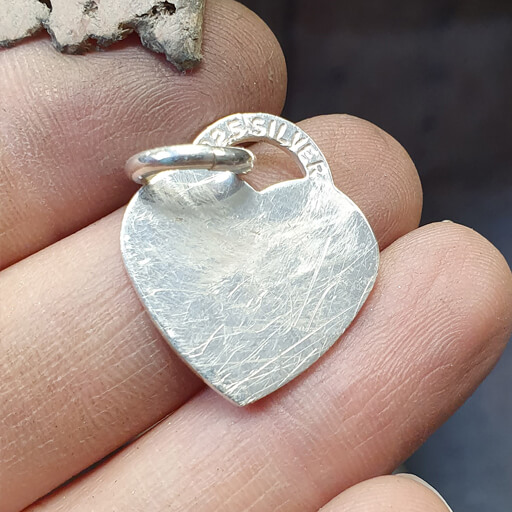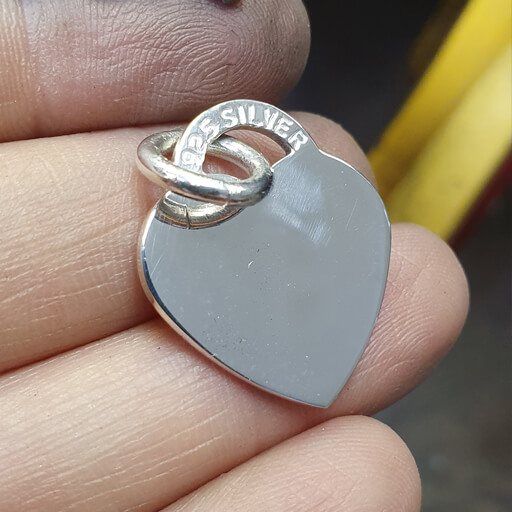How to clean sterling silver jewellery
Lustrous, beautiful and versatile but wonderfully affordable, sterling silver delivers endless possibilities for stunning jewellery. From pretty necklaces to stylish earrings, sterling silver can be amazing and probably features in your jewellery collection. If it does, it is something to treasure. But maybe you don't wear your gorgeous silver pieces as often as you would wish. If you don't, the most likely reason is that they have become tarnished.
What is tarnish?
When oxygen or hydrogen sulphide come into contact with silver, these elements spark a chemical reaction. This process creates the dirty or discoloured look which we call tarnish. It is a thin layer of corrosion which is self-limiting, unlike rust. In other words, tarnish will not continue to eat away at the metal as only the surface of the metal is affected. The layer of tarnish that forms actually protects the metal beneath from corrosion.
Fortunately, you can reduce the chances of your jewellery tarnishing. But If it has already tarnished, you can clean it to restore the wonderful lustre of the metal.

A Sterling Silver heart with many scratches
What is sterling silver?
Pure silver is relatively soft and too soft for jewellery as the resulting pieces would be easily damaged and would not provide secure fixings for gemstones. Silver alloys are therefore used to craft jewellery and these feature other metals, usually copper, to strengthen them. 925 sterling silver contains 92.5% silver and so offers a high level of purity together with impressive beauty. However, the purer the silver, the more prone it is to tarnishing.
How to prevent tarnish
The easiest way to prevent your silver jewellery from tarnishing is to wear it. This is because the oils in your skin continually clean the metal to maintain its shine. It is advisable to remove your jewellery while performing household chores or physical activities as perspiration, household chemicals, chlorinated water and anything containing sulphur will accelerate the tarnishing process. Items which are problematic include eggs, mayonnaise, mustard, onions, latex, and wool as they all contain sulphur.
Direct sunlight will also promote tarnishing. Remove your jewellery when sunbathing or sitting outside on a sunny day for a prolonged period. Your lotions, perfumes, cosmetics and hair products will tarnish your silver which is why your jewellery should be the last thing you put on when you are getting dressed.
The way you store your jewellery will help to preserve its lustre. Silver pieces are best stored with anti-tarnish strips in sealed plastic bags. Store each piece in a separate bag because as silver is soft, pieces stored together can scratch each other. If you can't use bags, choose somewhere with low humidity to store your jewellery and place chalk, activated charcoal or silica gel in the box or container. These materials will attract the moisture and chemicals which lead to tarnishing.
Polishing your silver
If tarnishing isn't severe, it is possible to simply polish it away. Use a special silver cloth or microfibre cloth to avoid scratching the metal. Never be tempted to use paper or tissue as these materials are abrasive and may contain sulphur. Employ back and forth motions, mirroring the grain of the silver. Rubbing in circles will accentuate any scratches. Do not attempt to clean silver with a matt or satin finish using a silver polishing cloth as you will ruin the look.
Clean a small area of the piece and then use a different portion of the cloth for the next area to ensure that you don't transfer tarnish back to the jewellery. Extra care should be taken with silver plated items as rigorous polishing will remove the plating.
It is important to note that some pieces of jewellery will feature elements which have been intentionally allowed to tarnish by the silversmith. This is usually to darken small details to make them more prominent or to create an aged look. Careful polishing enables you to identify and avoid these areas so that you can maintain the original appearance of the piece.

A Sterling Silver heart having been polished
Commercial silver cleaners
Silver polishes and dips are freely available but choose wisely and always follow the instructions carefully. For more information, tips and tricks, check out Connoisseurs Jewellery.
Professional cleaning
Heavily tarnished silver or antique, valuable and fragile jewellery is best handled by a professional silver cleaner. They will have the expertise, equipment and materials which will ensure that your jewellery is polished to perfection. At Robinson Goldsmiths we restore and repair jewellery in store and also work with the most experienced jewellery workshops in the UK.
